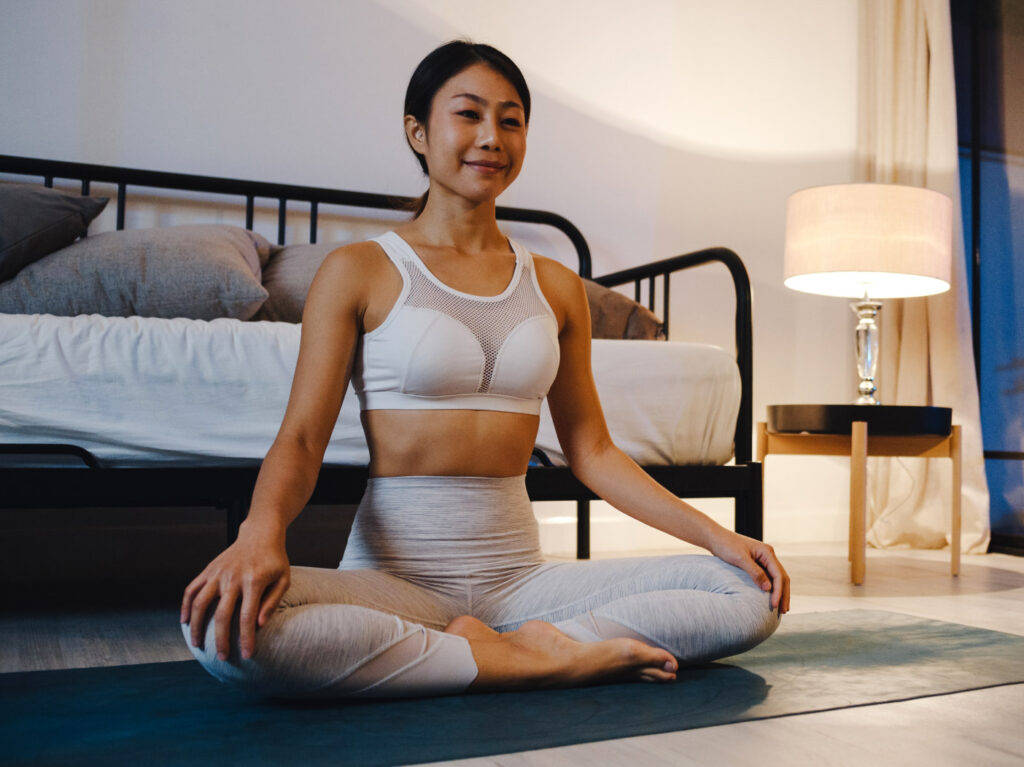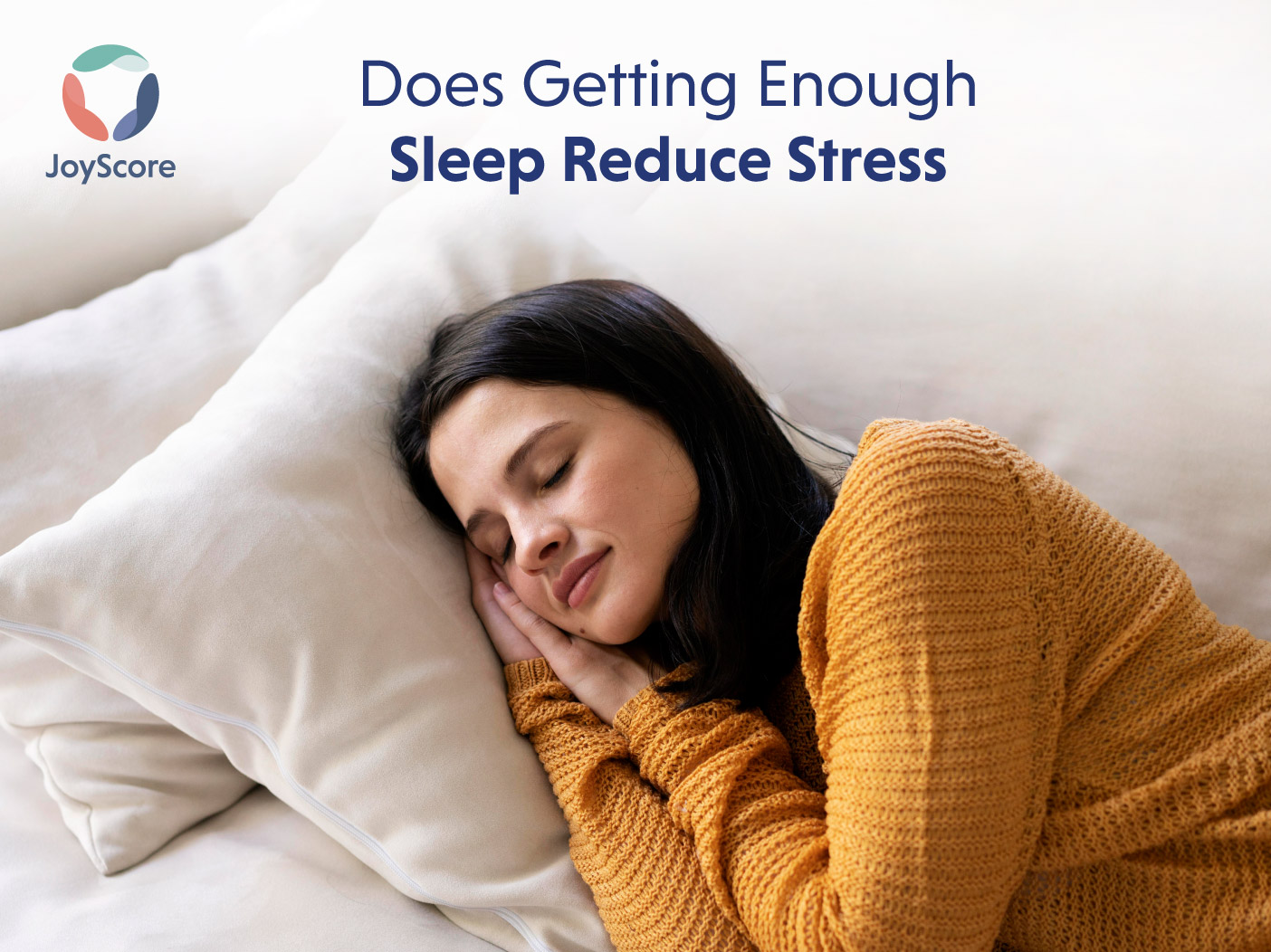When you are awake for too long, those minor things start to annoy you. That’s because of stress. Sleep is one of the most vital factors in a healthy lifestyle. Many people experience anxiety or stress when they don’t get enough sleep. Getting enough sleep is one way to manage stress and ensure your body and mind are operating at their peak performance. A good night’s sleep reduces anxiety improves your mood, and helps you feel more alert and focused throughout the day. Not getting enough sleep can lead to several health problems, including obesity, diabetes, and cardiovascular disease, so it’s something you should keep an eye on. Classically, sleep has been seen as a passive activity, but recent research suggests that sleep may play a very active role in regulating stress levels and immune function. This article covers everything you need to know about sleep, like how getting enough sleep reduces anxiety and stress, its benefits, best practices for getting more sleep, and more! To know more about how sleep reduces anxiety and stress, download Joyscore.
Why is sleep important?
Sleep is essential for many reasons. People who get enough sleep feel more energized and less stressed than those who don’t get enough sleep. Restorative sleep helps your body repair itself. Sleep also helps you manage stress, and these are three ways it does so:
- When you’re sleeping, your brain releases hormones that help you heal faster.
- Sleep helps your brain lower stress hormones, so you don’t feel as much stress when sleeping.
- Another vital factor of sleep is that it helps you feel refreshed and recharged.
When you’re sleep-deprived, you’re more likely to feel tired and worn out, which can increase your stress level. Sleep deprivation also makes you less able to manage stress effectively and efficiently.
The Science Behind Getting Enough Sleep to Reduce Stress
One of the significant benefits of getting enough sleep is that it helps reduce stress. A cascade of hormonal changes happens in your body when you’re sleep-deprived, leading to a surge in stress hormones that increase your body’s stress level. Getting enough sleep helps lower the number of stress hormones in your body. The neurotransmitters released while you sleep help you feel more relaxed and calm, reducing your stress level. Getting enough sleep also enables you to think more clearly, which can help you handle stressful situations more efficiently. When you’re sleep-deprived, you’re more likely to make impulsive or irrational decisions, which can increase your stress level lead to anxiety disorders too. When we are stressed, our bodies produce a chemical called cortisol. If we don’t get enough sleep, we produce too much cortisol, which can cause several health problems. Getting enough sleep helps you reduce the amount of cortisol in your body.
6 Ways that Getting Enough Sleep Reduces Anxiety and Stress
The list below covers the most critical ways sleep can help reduce stress.
- You have more energy to handle stress – When you’re sleep-deprived, your body and mind operate at less than total capacity, making it harder to handle stressful situations. Getting enough sleep gives you the energy to deal with stressful situations effectively.
- You’re less stressed – When you get more sleep, your brain releases more serotonin and dopamine, making you feel less stressed. Sleep also helps your body lower stress hormones, so you’re less likely to feel stressed when sleeping.
- You make better decisions – When you’re sleep-deprived, your brain isn’t operating at total capacity, making you more likely to make bad decisions. Getting enough sleep helps you think more clearly, so you’re less likely to make rash decisions when you’re sleep-deprived.
- You’re more optimistic – Getting enough sleep can make you feel more optimistic, which can help reduce stress. Sleep also helps your brain release more serotonin, making you more optimistic.
How to Get More Sleep to Reduce Stress
Here are a few tips for getting more sleep and reducing stress:
- Create a sleep schedule – Your body is used to a specific sleep schedule, so create a consistent sleep schedule to get good sleep. During the day, a power nap may help you to get sufficient sleep.
- Avoid sleep-interfering habits – Do you stay up late scrolling through social media or watching TV? Those habits can keep you up at night, making it harder to get better sleep. Avoiding sleep-interfering habits can help you get sufficient sleep.

- Take care of your health – Stay healthy by exercising regularly and eating a balanced diet. This can help you sleep better and help your body lower its level of stress hormones.
- Sleep environment – Creating a sleep-friendly environment and keeping your bedroom dark and quiet can help you get better sleep.
- Avoid caffeine and alcohol before bed – Drinking caffeine and drinking alcohol close to bedtime makes it difficult to fall asleep.
- Relaxing before bed – Activities like meditation, reading, and a warm bath can help you relax and make falling asleep easier.

ConclusionSleep is the time of day when the body repairs itself and builds new cells while also cleaning out toxins. Without adequate sleep, the body becomes more susceptible to illness and injury. Sleep deprivation can lead to irritability, moodiness, and even increased anxiety. So if you’re stressed out or feeling anxious about a situation in your life, try getting some shut-eye. You’ll feel better rested, and your stress will melt away. Getting good sleep is the best way to reduce stress, so ensure you get enough sleep every night! Remember getting enough sleep can also help you make better decisions, feel more optimistic, and have more energy to handle stressful situations. Stay consistent with your sleep schedule, avoid alcohol and caffeine before bed, and try relaxing activities.
To know more about Enough Sleep to Reduce Stress Download the Joyscore App Now!
Download on the Appstore
Get it on Google Play



